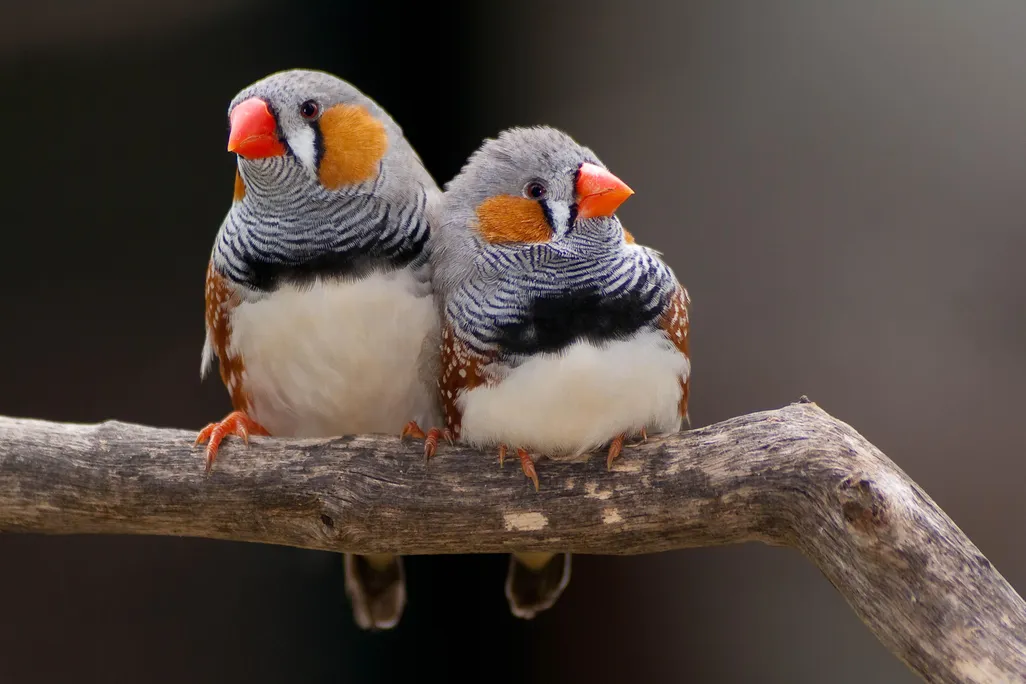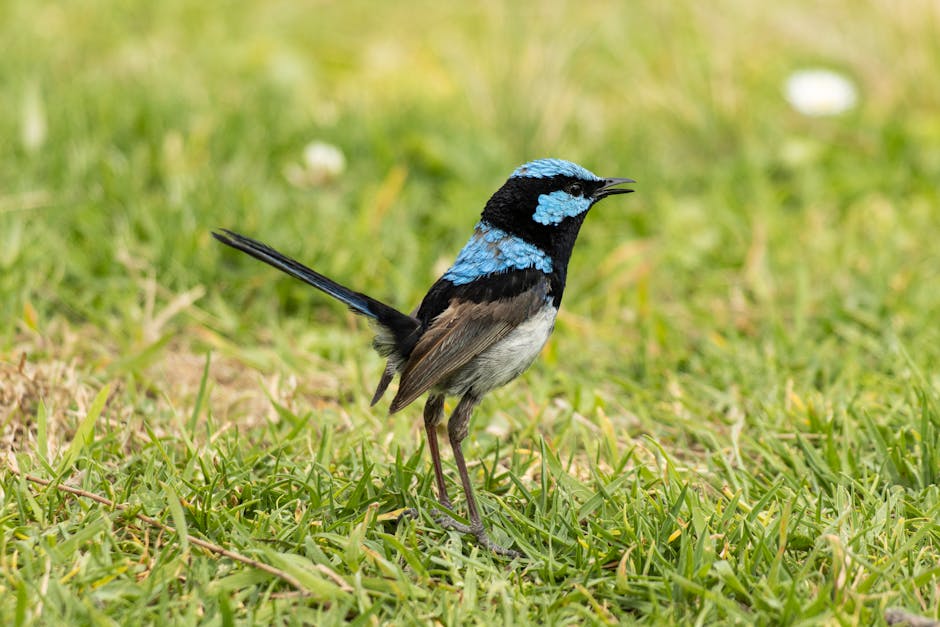Have you ever wondered why some birds choose to sing when the world around you is quiet and dark? It might seem strange that while most creatures rest, these feathered singers fill the night with their melodies.
Understanding why birds sing at night can change how you experience those peaceful hours and reveal surprising secrets about nature. Keep reading, and you’ll discover why these nighttime songs matter—and how they might even affect your own sense of calm and connection to the world around you.
Nocturnal Bird Species
Nocturnal bird species are active during the night, unlike most birds that sing during the day. Their songs fill the dark hours with unique sounds. These night singers use calls to communicate, find mates, or mark territory. Their voices often carry farther at night due to less noise and cooler air. Understanding these birds helps us appreciate the night’s natural symphony.
Common Night Singers
- Owls – Known for their hooting calls, owls use sound to locate prey and attract mates.
- Nightingales – Famous for complex songs, they sing beautifully through the night.
- Common Poorwill – This small bird produces soft, repetitive calls after sunset.
- Chuck-will’s-widow – It has a unique, rhythmic call heard in southern forests.
- Whip-poor-will – Its name comes from its continuous song heard at night.
Habitat And Behavior
Nocturnal birds live in diverse habitats like forests, deserts, and wetlands. They choose places where darkness offers safety and hunting chances. Many prefer dense trees or thick bushes for shelter. Night singing helps them avoid daytime predators and reduce competition. Their behavior often revolves around mating season or territory defense. Silence during the day keeps them hidden and active at night.
Mating Calls After Dark
Birds singing at night might seem unusual, but it often serves a clear purpose: mating calls. These calls help birds communicate in the quiet hours when fewer distractions exist. Understanding why birds sing after dark can change how you view your nighttime surroundings.
Attracting A Mate
Nighttime provides a unique stage for birds to attract potential mates. The silence allows their songs to travel farther, increasing the chances of being heard. You might notice that male birds sing more intensely at night, trying to stand out in the competition for a partner.
Have you ever paused to listen closely on a warm night and realized the variety of songs? Each melody can signal the singer’s health and vitality, crucial factors that females consider. It’s like the bird world’s version of a personal advertisement.
Territorial Signals
Besides attracting mates, night singing also marks territory. A clear, strong song warns other males to stay away, reducing physical confrontations. This silent communication helps maintain peace and balance within bird communities.
Think about your own neighborhood—how do you mark your space? Birds use their voices to do the same, especially when the usual daytime noise fades away. Their nighttime songs create invisible boundaries that keep their environment secure.
Less Noise Pollution
Birds singing at night often catch our attention because the environment is so different from the busy daytime. One key reason they choose this quiet time is less noise pollution. Without the usual daytime sounds of cars, people, and machines, birds find a peaceful stage to make their songs heard clearly.
Clearer Communication
At night, the absence of loud noises helps birds communicate more effectively. Their calls travel farther and don’t get lost in background noise. Imagine trying to have a conversation in a crowded room versus a quiet library—nighttime offers that calm library setting for birds.
Clear communication is essential for many reasons, like attracting mates or marking territory. When the environment is quieter, birds can use softer, more intricate sounds that might be drowned out during the day. Have you noticed how some songs sound sweeter or more detailed at night? That’s the difference less noise pollution makes.
Advantages Over Daytime Singing
- Less competition:Fewer birds sing at night, so each voice stands out more.
- Energy efficiency:Singing when it’s quiet means birds don’t need to be as loud, saving energy.
- Reduced interference:Sounds don’t get mixed up with traffic or human activities, making messages clearer.
Have you ever tried to call someone in a noisy place and had to repeat yourself multiple times? Birds avoid this frustration by choosing the quieter night. This simple choice improves their chances of being heard and understood.

Credit: www.livingwithbirds.com
Environmental Factors
Environmental factors play a key role in why birds sing at night. These conditions affect bird behavior and communication. Nighttime changes can create the perfect setting for birds to use their songs effectively. Understanding these factors helps explain this curious behavior.
Temperature And Humidity Effects
Cooler temperatures at night often encourage birds to sing. Low heat reduces air turbulence, making sounds travel farther. Humidity levels also influence sound transmission. Higher humidity can help carry bird songs over longer distances. Birds take advantage of these conditions to communicate clearly and attract mates.
Moonlight And Visibility
Bright moonlight improves visibility during the night. This light helps birds see rivals and potential mates. Moonlit nights can boost bird activity and singing. Birds use moonlight to navigate and mark their territory. Dark, moonless nights usually see less bird song. The amount of moonlight directly affects how much birds sing after dark.
Predator Avoidance
Birds singing at night often do so to avoid predators. Nighttime offers safety from many daytime hunters. Singing under cover of darkness helps birds stay hidden. This strategy lowers their chance of being caught.
Reduced Risk At Night
Fewer predators are active at night. Many birds of prey hunt during the day. Nighttime singing lowers a bird’s chance of being spotted. Darkness acts as a natural shield. It reduces the risk of attacks.
Silent Flight And Stealth
Some birds can fly quietly at night. Their soft feathers help them move without noise. This silent flight helps them avoid alerting predators. Singing at night pairs well with this stealth. Birds stay safe while communicating.

Credit: www.allaboutbirds.org
Human Impact On Birdsong
Human activity has a surprising influence on birdsong, especially at night. Our presence changes the way birds communicate, often disrupting their natural patterns. Understanding this impact can help you see the night chorus in a new light and even inspire ways to protect these singers.
Urban Lighting Influence
Streetlights and building lights keep cities glowing long after sunset. This constant illumination confuses many birds, making them think it’s still daytime. You might notice some birds start singing earlier or continue singing well into the night because they rely on light cues to time their songs.
Living near a brightly lit area, I observed that robins began their dawn songs almost an hour earlier than those in darker neighborhoods. This shift isn’t just a quirk—it can affect their feeding and mating habits. Have you ever wondered how your porch light might be changing the night soundscape?
Changes In Bird Behavior
Birds adapt to human changes in surprising ways, but not always for the better. Night singing can increase in noisy or crowded areas as birds try to outcompete the background sounds. This means their songs may become louder, longer, or more frequent, which can tire them out or reduce their effectiveness.
Some species start singing at night to avoid daytime disturbances, but this shift can interfere with their sleep and health. If you’ve noticed more nighttime bird calls in your area, it might be a sign that these birds are struggling to adjust. What small changes in your environment could help birds keep their natural rhythm?

Credit: www.smithsonianmag.com
Frequently Asked Questions
Why Do Some Birds Sing At Night?
Some birds sing at night to attract mates or defend territory. Nighttime singing helps avoid daytime noise and predators. It also signals fitness and presence in quieter hours.
Which Bird Species Commonly Sing At Night?
Common night singers include nightingales, mockingbirds, and owls. These species use nighttime songs for communication and mating. Their calls are adapted to be heard in the dark.
How Does Artificial Light Affect Night Bird Songs?
Artificial light can increase bird singing at night by confusing their internal clocks. This disrupts natural behaviors and may cause stress. Light pollution also affects bird migration and feeding patterns.
What Triggers Birds To Sing During Nighttime?
Birds sing at night due to hormonal changes, light levels, and environmental cues. Early spring and breeding seasons often trigger nighttime songs. Quiet surroundings at night also encourage singing.
Conclusion
Birds singing at night fascinates many. Their songs can signify different things. Some sing to mark territory. Others call for mates. Night songs also confuse predators. Bright city lights may trick birds. They think it’s still daytime. Climate changes can alter bird behaviors.
Bird songs at night remind us of nature’s wonders. They show how adaptable wildlife can be. Listening to night songs can be calming. Next time you hear them, enjoy the melody. It’s nature’s nighttime symphony.

